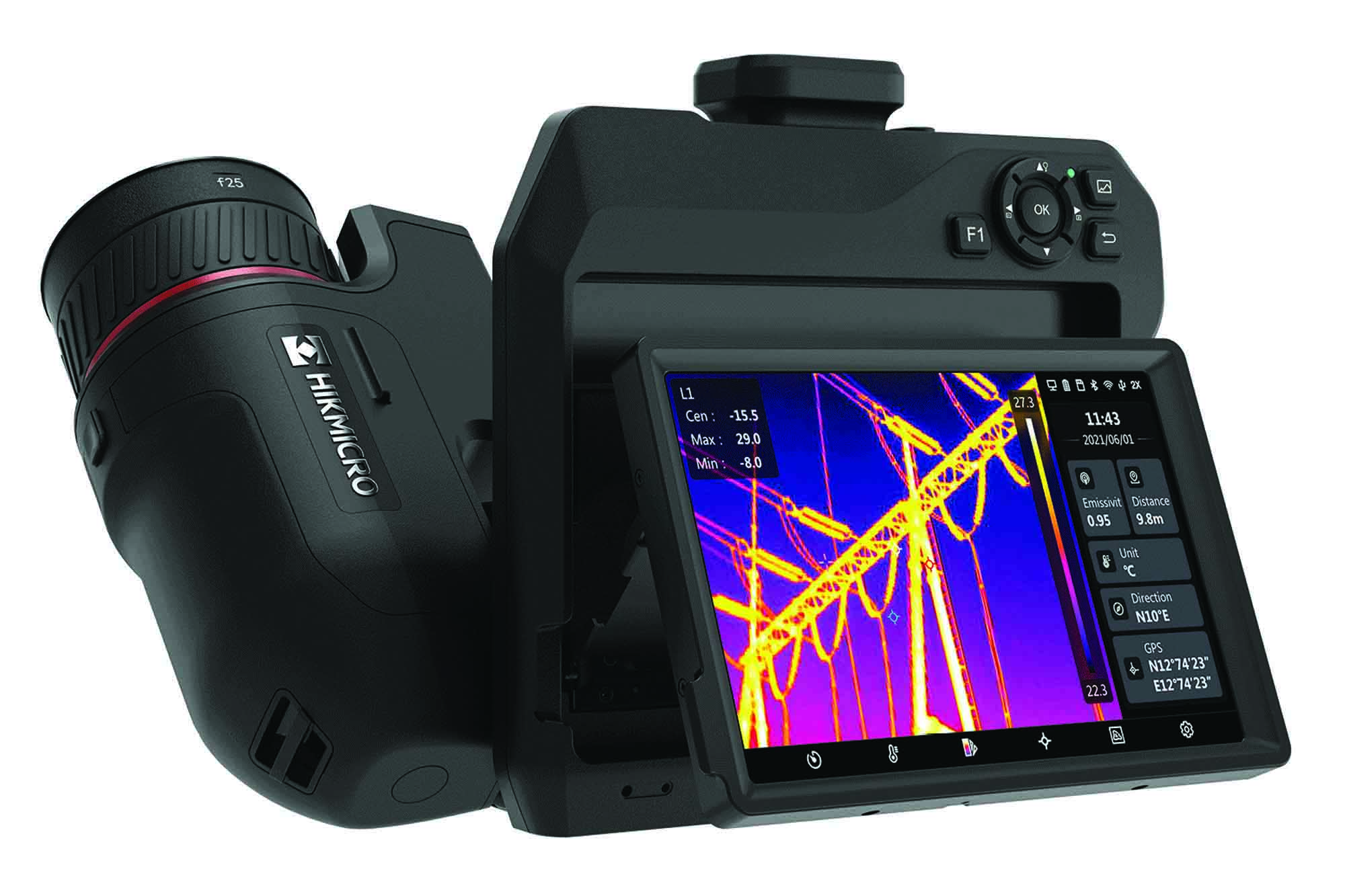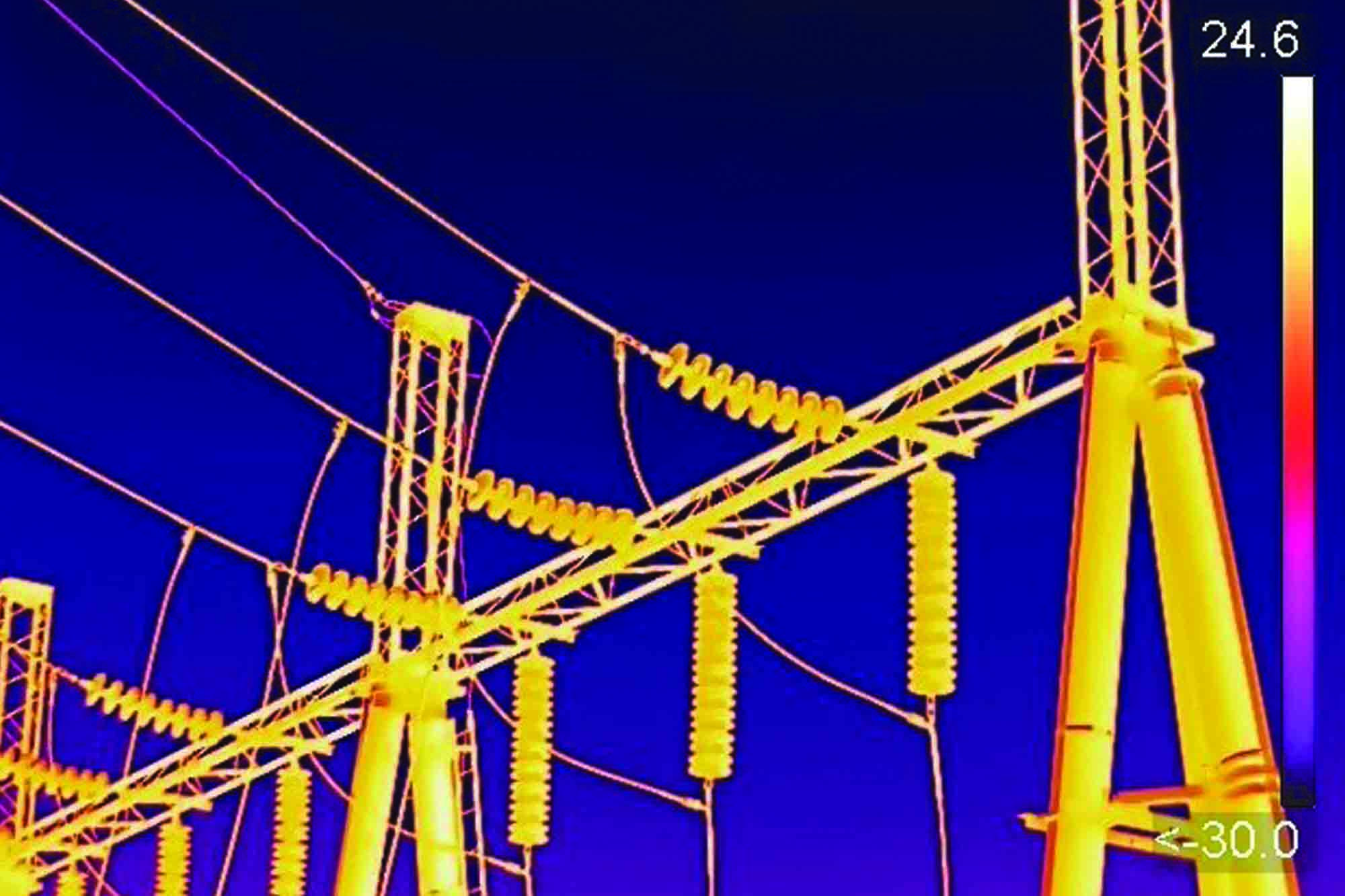Thermal cameras locating electrical faults
By Staff Report July 3, 2025 6:03 pm IST
By Staff Report July 3, 2025 6:03 pm IST

As the temperature difference increases, so do energy and repair costs, as well as the risk of fire. These electrical systems are extremely powerful and need routine inspections to ensure reliability, reduce maintenance costs and operate safely.
As most electricians are aware, heat is a byproduct of an operating electrical circuit. Excessive heat is also a way for service technicians to identify any hot spots and potentially dangerous electrical faults. These faults can increase costs through equipment failure, additional repairs, and service interruptions for business or related facilities.
An electrical fault is an abnormal condition that alters voltage or current. For example, it can be a loose connection, damaged insulation, or a buildup of debris. Because current flow naturally generates heat, faults can create thermal hazards which cause property damage and interrupt normal operations.
The severity of a fault is categorised by how far the current temperature rises above a reference temperature or a comparable location under the same load. As the temperature difference increases, so do energy and repair costs, as well as the risk of fire. These electrical systems are extremely powerful and need routine inspections to ensure reliability, reduce maintenance costs and operate safely.
With larger facilities, there is a greater risk for catastrophic failures, resulting in fire damages that can cost hundreds of thousands of dollars to repair — if not more. CNA reports that the average electrical fire causes over $750,000 in damages. This does not include costs associated with business interruption due to shutting down the facility or a portion of it. That is a significant amount compared to the price of a thermal imaging camera, which can range anywhere from $400 to $7,000.
By adding a thermal imaging camera to your tool bag, you can find and address these issues safely and cost-effectively. In traditional inspection, technicians rely on visual inspections during outages. This is a slow and expensive process, and often, there’s no visible indication of failure until it’s too late.

How can thermography help?
Without thermal imaging technology, searching for electrical faults requires direct contact or hands-on testing. Electric power to equipment that needs inspection is turned off, which can negatively impact business operations, especially if a company relies on this circuit for its power source or data centre.
Thermography allows field professionals to step back — literally — and inspect from outside the NFPA-restricted approach boundary. While some cabinets and equipment may still need to be opened to provide a line of sight for measurements, thermal cameras themselves do not require direct contact. With IR Windows, thermographers can view components without opening cabinets, enabling much faster and safer inspections.
Thermal cameras also do not require de-energising of equipment; at least a partial load is necessary to measure any heat discrepancies that indicate an electrical fault. Because of this, thermography reduces the potential for production or service interruptions during inspections.
Thermal cameras collect visual as well as data points, which lets technicians show customers the severity of their electrical problems. Technicians can use this collected information to support repair requests and verify that their work has solved the issue. Improved documentation also builds historical data for future analysis. Maintenance personnel can track more details for problem items across multiple scheduled inspections.How are thermal cameras used for inspections?
The key to using thermal cameras for inspecting electrical systems is accurate temperature measurement and comparison. Comparison alone will give you a good idea of areas to inspect further, and measurements will allow you to classify the severity of the fault. To determine severity, a technician compares measurements from the component in question to those of a similar one under the same load.
Another common metric is to measure the temperature rise above the ambient temperature. Important parameters to set for accurate measurement include emissivity (the degree of reflectivity of the surface), background temperature, and distance. If you’re viewing connections through an IR Window, you would also need to input the window transmission. Most standards for thermal inspection include information on acceptable limits, safety protocols, and other requirements to ensure reliability. While thermal cameras cannot completely replace the need for visual and contact inspections, they can help pinpoint where in the system these types of inspections are warranted. Thermography provides maintenance staff with the information they need for early detection and for prioritising repairs, which in turn saves money. These exceptional tools can improve safety, reliability, efficiency, and costs. Explore the various thermal imaging cameras HIKMICRO has to offer.
***************************
Authored by:
Ashish P. Dhakan, MD & CEO, Prama Hikvision India Pvt. Ltd.
*********************************
For more information, please visit us at www.hikvisionindia.com
We use cookies to personalize your experience. By continuing to visit this website you agree to our Terms & Conditions, Privacy Policy and Cookie Policy.